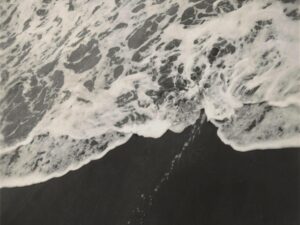“Change is coming, whether you like it or not.” These are the words of climate activist Greta Thunberg, posting on Instagram in 2019. It’s more important than ever to consider our relationship with the environment, and art is one way to do so. Discover 5 Aesthetica Art Prize artists turning their attention to our world – through sculpture, painting, photography and video.
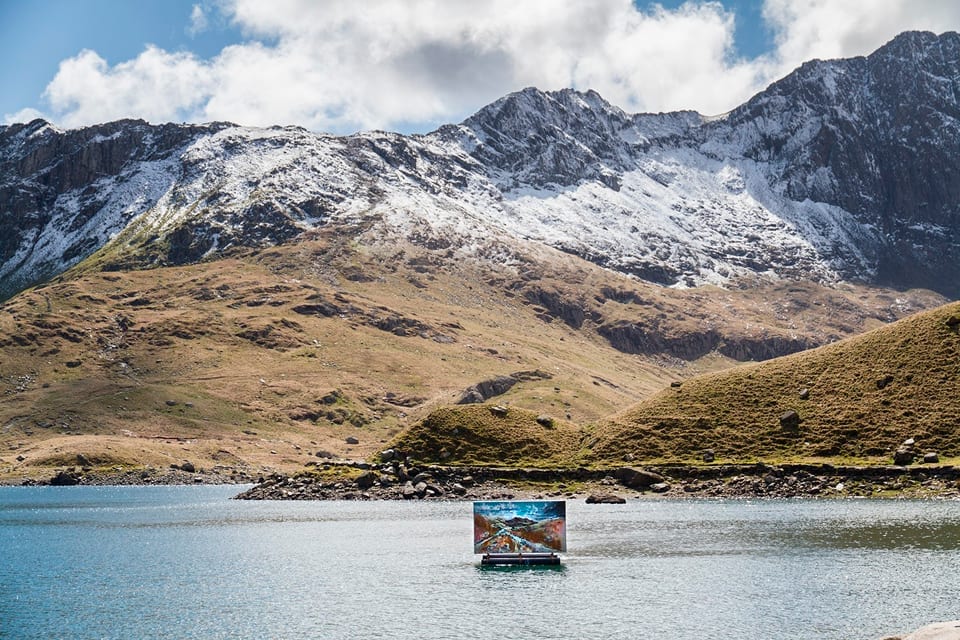
Anthony Garratt, High and Low / Uchel ac Isel | Photography / Installation
In a signature outdoor painting installation, Anthony Garratt responds to the landscape and history of North Wales. High and Low or Uchel ac Isel comprises one four-and-a-half metre long painting installed on the mountain lake of Llyn Llydaw on Snowdon. A second artwork was placed deep in an abandoned slate mine. Both were filmed as natural processes took effect on them over time.
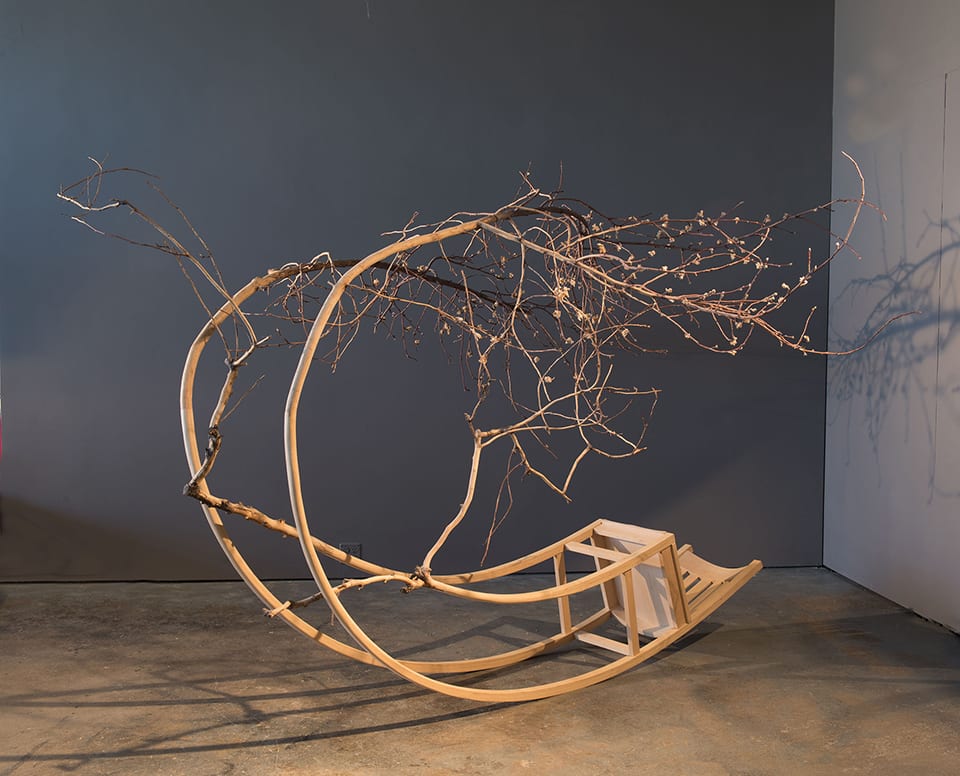
Jim Jacobs, Crest | Sculpture
In many of Jacobs’ sculptures, natural tree limbs are grafted to milled lumber, wooden tools, furniture and human hair. These works – gangly, elegant, contrived, fragile, and at times, self-destructive – are reflections on our peculiar relationship with the natural world. “Whether we see nature through the lens of a steward or a romantic, our disproportionate impact on the environment will always distinguish us as a species.”
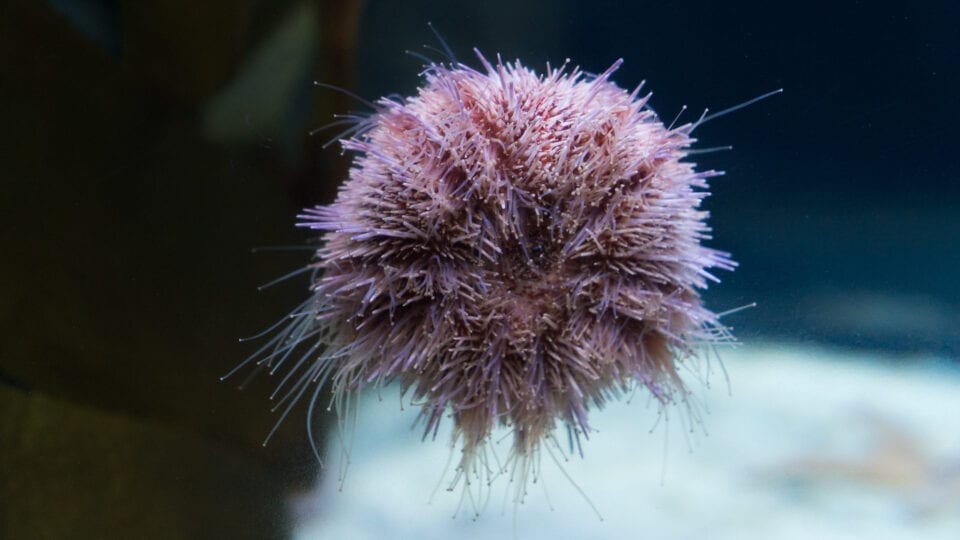
Elise Guillaume, Connecting Water | Video
Concerned with environmental issues, Elise Guillaume explores industries which make nature a commodity. “When I document industries,” the artist explains “I notice and feel similarities between the treatment of nature and women.” Connecting Water is the result; the film explores intriguing parallels between a fish market, a young woman completing domestic tasks, an aquarium and the coast.
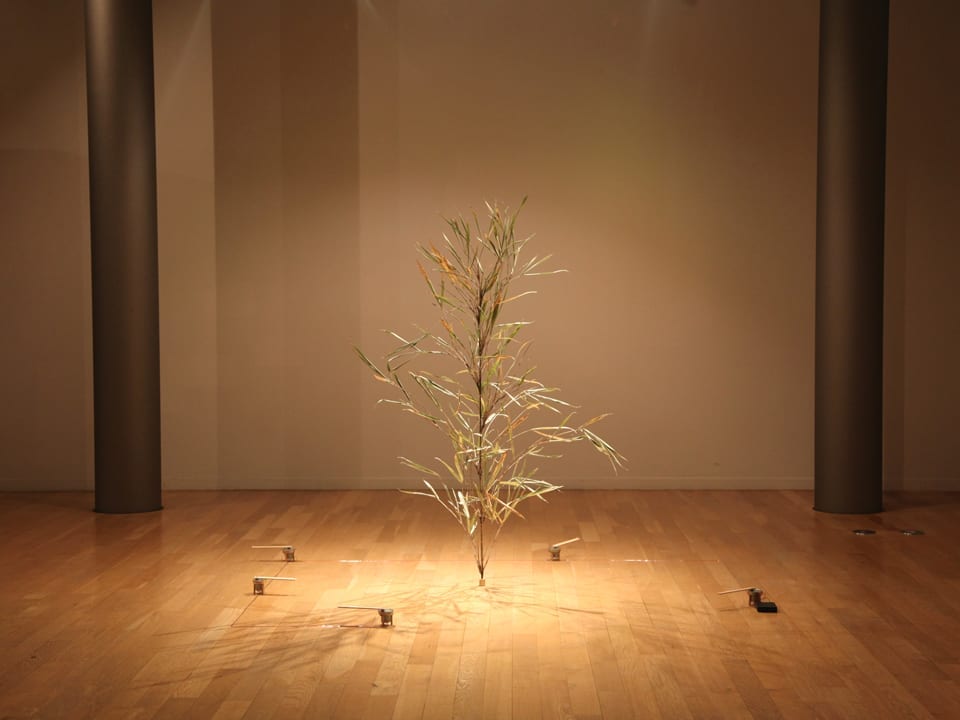
Adriana Salazar, Moving Plant #32 | Installation
Moving Plant #32 is made from a fallen bamboo branch, which is placed in the gallery and re-animated through external, low-tech mechanisms. It shows how nature adapts to a specific place, and how it constantly blends with the urban environment. The series consists of various site-specific installations, set in different cities. It reveals the artificiality of plants in urban spaces, manipulated by human beings.
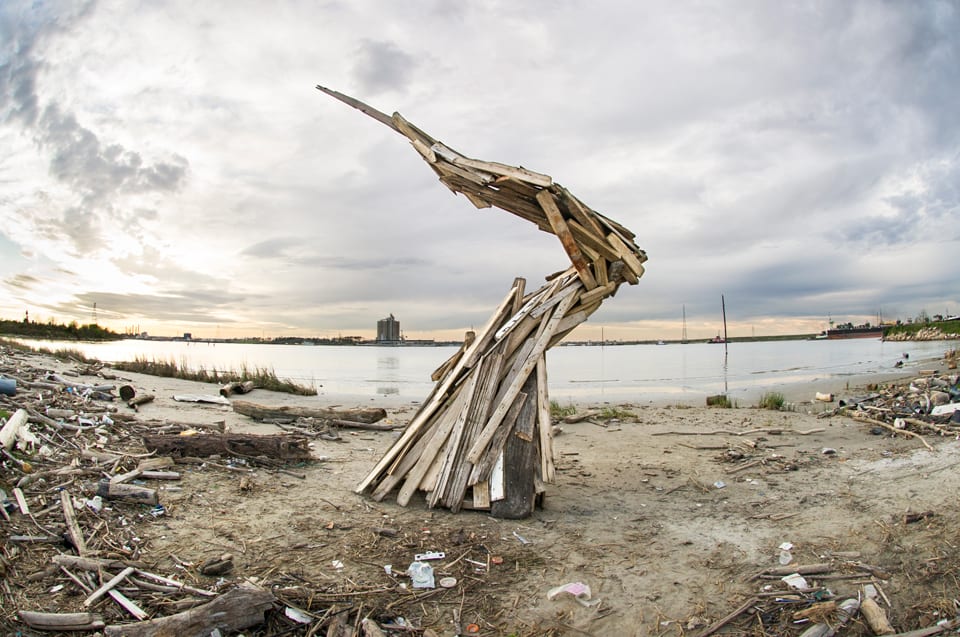
Jeremy Underwood, Human Debris | Photography / Sculpture
The Human Debris project draws attention to the state of the environment in Houston’s waterways. Underwood creates site-specific sculpture from abandoned objects, challenging viewers to reflect on consumer culture and our relationship to the world. He photographs and leaves his creations to be discovered by others. A visually striking meditation on waste and consumption.
Lead image: Jeremy Underwood




